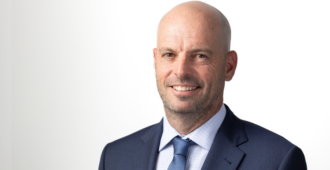
A $4.5 million grant from the National Health and Medical Research Council (NHMRC) has been awarded to establish one of the largest intergenerational cohort studies in the world focused on mental health and wellbeing.
The 18 and Up Study was announced today as one of the 22 successful projects funded by the NHMRC’s Clinical Trials and Cohort Studies grant scheme.
The study will involve a cohort of around 300,000 participants by bringing together three generations of Australians including participants from the Sax Institute’s 45 and Up Study – one of the largest ongoing studies into health and ageing – and through recruiting their children and grandchildren.
Dr Martin McNamara, Chief Investigator of the 18 and Up Study and CEO of the Sax Institute, said that the study will be crucial to addressing the increase in poor mental health in Australia.
“The prevalence of psychological distress, depression and anxiety has risen steadily in Australia over the past 20 years, and we need to better understand the causes and course of poor mental health in the context of health system responses,” Dr McNamara said.
“The 18 and Up Study will be a powerful tool in understanding the unique influences on younger Australians’ wellbeing and allow comparisons across generations.”
The project involves a team of internationally regarded Chief Investigators: Professor Jane Pirkis, University of Melbourne; Professor Sharon Lawn, Lived Experience Australia; Dr Xenia Dolja-Gore, University of Newcastle; Professor Tim Slade, University of Sydney; Professor Craig Olsson, Deakin University; Professor Matthew Spittal, University of Melbourne; Professor Cathy Mihalopoulos, Monash University; Professor Samuel Harvey, Black Dog Institute; and Dr Kerrin Bleicher.
By leveraging the power of the 45 and Up Study, an internationally recognised resource for health and wellbeing research with more than 20 years of data on over 250,000 participants, the 18 and Up Study cohort can be established relatively quickly.
Recruitment is expected to be underway in 2026, with survey data to be collected at multiple time points over several years and linked to participants’ health service data.
“As the 45 and Up Study enters its 20th year, we’re so grateful that more than a quarter of million Australians have shared their lives with us,” Dr McNamara said. “We’re excited to grow that relationship with new generations, so that their experiences can improve the health of all Australians.”





